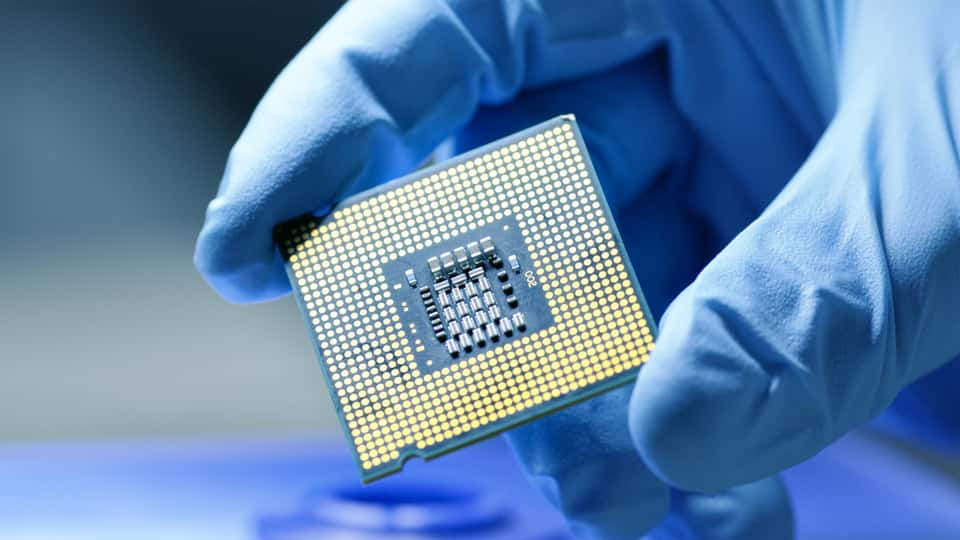Despite being a premier chipmaker, Taiwan Semiconductor Manufacturing Company Limited (TSM - Get Rating) reported a decrease in revenue and profits in the last reported quarter as it grappled with a global slowdown in the semiconductor market. Macro headwinds weakened the semiconductor demand, primarily in the consumer electronics industry.
The company said its business was impacted by macro headwinds “which dampened the end market demand and led to customers’ ongoing inventory adjustment.”
TSM saw a 10% year-over-year decline in revenue to NT$480.84 billion ($15.68 billion) in the second quarter of 2023. Meanwhile, its net income declined 23.3% to NT$181.80 billion ($5.93 billion).
While TSM anticipates that the strong ramp of its 3-nanometer technologies in the third quarter of 2023 will bolster its financials, it still foresees persistent customer inventory adjustments, which could drag the company’s revenue.
In addition, TSM has announced a delay in commencing production at its new Arizona establishment, pushing it back from 2024 to 2025, citing a shortage of skilled workers and expenses running higher than in Taiwan.
Although TSM shares have gained 33.5% year-to-date, investors should wait to buy the stock until the signs of improvement in the semiconductor market become more evident.
Here are some factors that could influence TSM’s performance in the near term.
Bleak Short-Trem Semiconductor Market Outlook
Weak end-market electronics demand, an oversupply of chips elevating inventories, and reducing chip prices create a challenging landscape for the semiconductor industry.
According to Gartner, global semiconductor revenue is expected to decline 11.2% in 2023.
“The semiconductor industry is facing a number of long-term challenges in the decade to come,” said Richard Gordon, Practice Vice President at Gartner. “The past decades of high volume, high-dollar content market drivers are coming to an end, notably in the PC, tablet, and smartphone markets where technology innovation is lacking,” he added.
Pessimistic Growth Estimates
TSM’s revenue for the ongoing quarter ending September 2023 is expected to decline 11.4% year-over-year to $17.04 billion. Moreover, analysts expect its revenue to decrease by 9.2% in the quarter ending December 2023 and 9.9% for the current fiscal year.
The consensus EPS estimate of $4.96 for the fiscal year indicates a decline of 24.5% from the year-ago value. Its EPS is expected to plunge 35.5% year-over-year in the current quarter and 30.4% in the following quarter.
Robust Profitability
TSM’s trailing-12-month gross profit margin of 58.63% is 20.5% higher than the industry average of 48.66%, while its trailing-12-month net income margin of 43.33% is substantially higher than the industry average of 2.01%.
Moreover, its trailing-12-month ROE, ROTA, and ROTC of 33.97%, 18.75%, and 17.73% compared with the industry averages of 0.50%, 0.02%, and 1.66%, respectively.
Mixed Valuation
In terms of forward EV/Sales, TSM is trading at 6.73x, which is 122.2% higher than the 3.03x industry average, while its forward Price/Sales of 7.00x is 143.1% higher than the industry average of 2.88x.
However, its forward EV/EBITDA multiple of 9.97 is 32.3% lower than the 14.72x industry average. Also, its forward Price/Cash Flow of 11.48x compared with the industry average of 20.99x.
POWR Ratings Reflect Uncertainty
TSM has an overall C rating, equating to a Neutral in our POWR Ratings system. The POWR Ratings are calculated by considering 118 different factors, each weighted to an optimal degree.
Our proprietary rating system also evaluates each stock based on eight distinct categories. TSM’s mixed valuation justifies its C grade for Value.
It has a C grade for Stability, consistent with its 60-month beta of 1.22.
TSM is ranked #33 out of 92 stocks in the C-rated Semiconductor & Wireless Chip industry.
Click here to see the other ratings of TSM for Growth, Quality, Sentiment, and Momentum.
View all top stocks in the Semiconductor & Wireless Chip industry here.
Bottom Line
Despite increasing AI chip sales and its leadership position in the industry, TSM is struggling to grow its revenues.
“While we maintain our forecast for the 2023 semiconductor market excluding memory to decline mid-single digit year-over-year, we now expect the foundry industry to decline mid-teens and our full year 2023 revenue to decline around 10% in U.S. dollar term,” CEO C.C. Wei said.
Given the global macroeconomic uncertainties, it could be best to wait for a better entry point in the stock.
Stocks to Consider Instead of Taiwan Semiconductor Manufacturing Company Limited (TSM)
Given its uncertain short-term prospects, the odds of TSM outperforming in the weeks and months ahead are compromised. However, there are many industry peers with much more impressive POWR Ratings. So, consider these three A-rated (Strong Buy) stocks from the Semiconductor & Wireless Chip industry instead:
Infineon Technologies AG (IFNNY - Get Rating)
STMicroelectronics N.V. (STM - Get Rating)
United Microelectronics Corp. (UMC - Get Rating)
What To Do Next?
Get your hands on this special report with 3 low priced companies with tremendous upside potential even in today’s volatile markets:
3 Stocks to DOUBLE This Year >
Want More Great Investing Ideas?
TSM shares were trading at $100.84 per share on Thursday afternoon, up $1.43 (+1.44%). Year-to-date, TSM has gained 36.38%, versus a 20.21% rise in the benchmark S&P 500 index during the same period.
About the Author: Subhasree Kar

Subhasree’s keen interest in financial instruments led her to pursue a career as an investment analyst. After earning a Master’s degree in Economics, she gained knowledge of equity research and portfolio management at Finlatics. More...
More Resources for the Stocks in this Article
| Ticker | POWR Rating | Industry Rank | Rank in Industry |
| TSM | Get Rating | Get Rating | Get Rating |
| IFNNY | Get Rating | Get Rating | Get Rating |
| STM | Get Rating | Get Rating | Get Rating |
| UMC | Get Rating | Get Rating | Get Rating |





